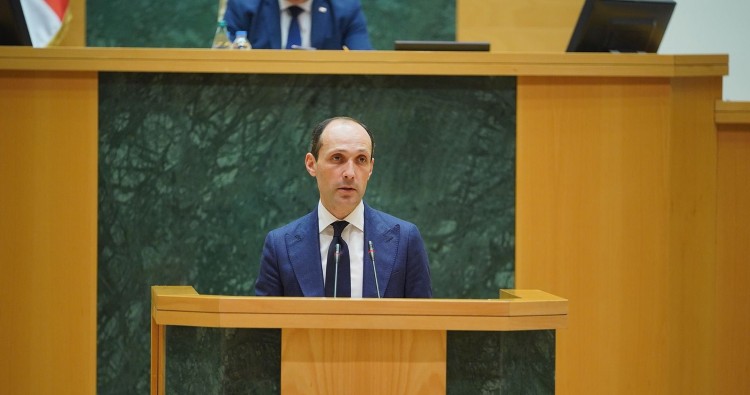
Georgian Economy Minister Levan Davitashvili on Wednesday told the country’s Parliament work on economic integration with the European Union would be intensified.
Based on the country’s status as a candidate for EU membership, the Ministry of Economy is activating its work beyond the obligations of the Deep and Comprehensive Free Trade Area deal in legislative and institutional rapprochement with the EU”, he said.
The Minister told MPs the 2024-2025 Georgia-EU DCFTA Priority Action Plan had been developed together with the European Commission and would be adopted by the end of the year.
In addition, the legislation of Georgia has been approximated to more than 65 percent of the legal acts of the EU stipulated by the DCFTA. We will continue to work with the bloc regarding the opening of the market for agricultural products, in particular animal products”, he said.
Davitashvili also told lawmakers the EU candidate status, granted to Georgia in December, had taken the process of the country’s integration into the bloc “to a new level”.
But at the same time, this decision was a logical continuation of the many years of work that our country had done since 2014. It was a difficult path to Georgia’s European integration, one stage of which we successfully overcame”, he added.
The Minister said the Government had joined the process of preparing a medium-term programme of economic reforms with the methodology developed by the European Commission for candidate countries and submitted the Economic Reforms Programme for 2024-2026 to the Commission “within the stipulated time for the first time” in January.
Davitashvili said the implementation of the reforms would bring Georgia “even closer” to joining the EU.
He also highlighted Georgia was “still leading” in economic growth not only in the wider region but also “among several member states” of the EU “despite facing global and regional challenges”. He said the country had managed to maintain “high economic growth” in 2023 after experiencing double-digit figures in 2021 and 2022.
Davitashvili said last year had also seen “other promising indicators”, such as a “historic low” in unemployment rate and a “record-high” employment.
He said inflation was also lower than the average of both EU candidate countries and the Eurozone, while foreign direct investments exceeded the pre-pandemic rate by 17.8 percent.
The Minister also told MPs revenues from international tourism were reaching a “record volume”, with an annual increase of 17.3 percent.






